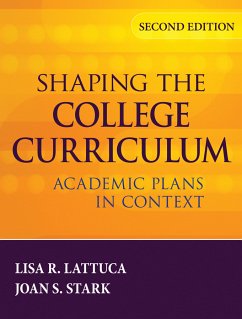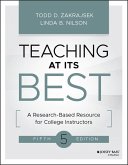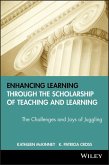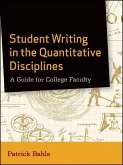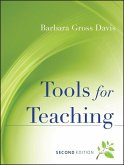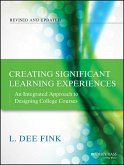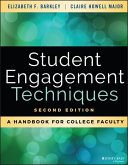Shaping the College Curriculum focuses on curriculum development as an important decision-making process in colleges and universities. The authors define curriculum as an academic plan developed in a historical, social, and political context. They identify eight curricular elements that are addressed, intentionally or unintentionally, in developing all college courses and programs. By exploring the interaction of these elements in context they use the academic plan model to clarify the processes of course and program planning, enabling instructors and administrators to ask crucial questions about improving teaching and optimizing student learning. This revised edition continues to stress research-based educational practices. The new edition consolidates and focuses discussion of institutional and sociocultural factors that influence curricular decisions. All chapters have been updated with recent research findings relevant to curriculum leadership, accreditation, assessment, and the influence of academic fields, while two new chapters focus directly on learning research and its implications for instructional practice. A new chapter drawn from research on organizational change provides practical guidance to assist faculty members and administrators who are engaged in extensive program improvements. Streamlined yet still comprehensive and detailed, this revised volume will continue to serve as an invaluable resource for individuals and groups whose work includes planning, designing, delivering, evaluating, and studying curricula in higher education. "This is an extraordinary book that offers not a particular curriculum or structure, but a comprehensive approach for thinking about the curriculum, ensuring that important considerations are not overlooked in its revision or development, and increasing the likelihood that students will learn and develop in ways institutions hope they will. The book brings coherence and intention to what is typically an unstructured, haphazard, and only partially rational process guided more by beliefs than by empirically grounded, substantive information. Lattuca and Stark present their material in ways that are accessible and applicable across planning levels (course, program, department, and institution), local settings, and academic disciplines. It's an admirable and informative marriage of scholarship and practice, and an insightful guide to both. Anyone who cares seriously about how we can make our colleges and universities more educationally effective should read this book." --Patrick T. Terenzini, distinguished professor and senior scientist, Center for the Study of Higher Education, The Pennsylvania State University
Dieser Download kann aus rechtlichen Gründen nur mit Rechnungsadresse in A, B, BG, CY, CZ, D, DK, EW, E, FIN, F, GR, HR, H, IRL, I, LT, L, LR, M, NL, PL, P, R, S, SLO, SK ausgeliefert werden.

